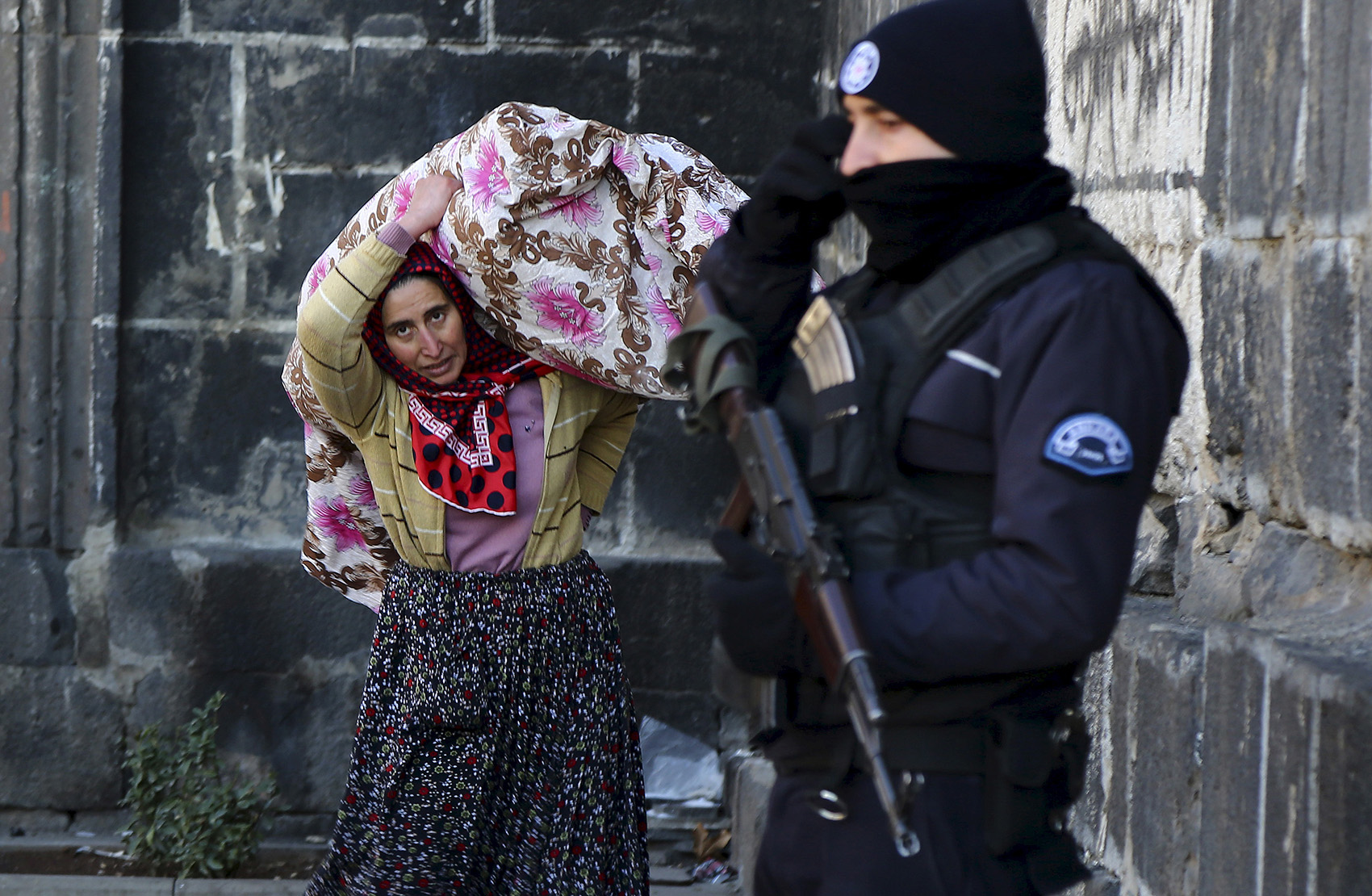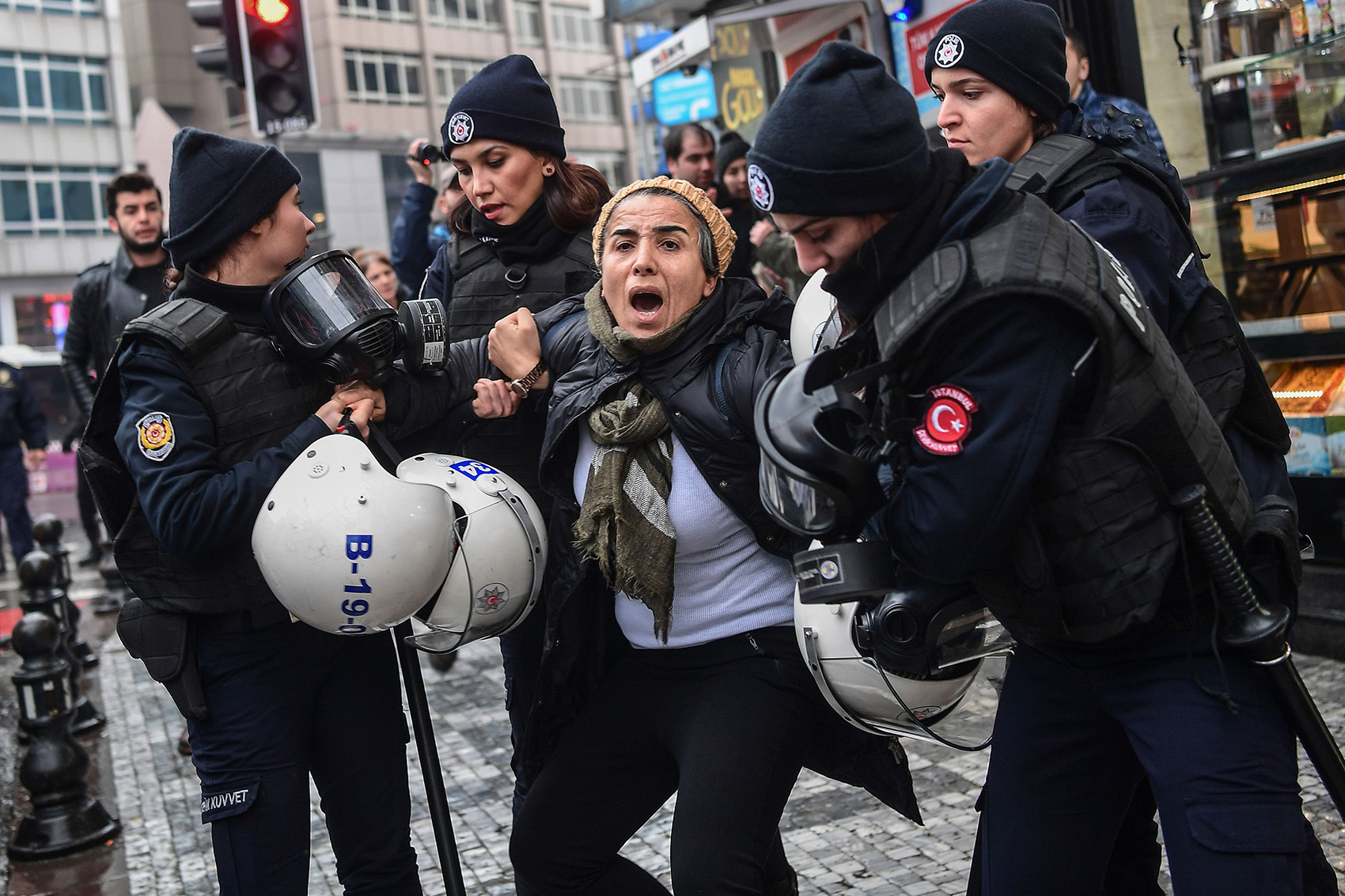On May 12, 2025, the Kurdistan Workers’ Party (PKK) announced its intention to disarm and dissolve, potentially ending its four-decades-long insurgency against the Turkish state. The announcement followed a unilateral ceasefire after the PKK’s imprisoned leader, Abdullah Öcalan, called on the militants to lay down arms. Questions remain about whether Ankara will offer democratic concessions to the Kurds, end its military operations in Iraq, and how the PKK’s disbandment could affect Kurdish factions in Syria.
Approximately thirty million Kurds live in the Middle East, primarily in Iran, Iraq, Syria, and Turkey. In Turkey, Kurds comprise nearly one-fifth of the population. The Kurdistan Workers' Party (PKK), established by Abdullah Öcalan in 1978, has waged an insurgency from southeastern Turkey since 1984. Though the PKK initially sought to establish an independent Kurdish state, it shifted its aims in 2005 to pursue greater cultural and political rights within Turkey. The Turkish state has historically restricted Kurdish language use and cultural expression, pursuing policies aimed at assimilating Kurds into a singular Turkish identity. The Turkish government views the PKK as a terrorist organization and the country’s top security threat. The broader Turkish-Kurdish conflict has resulted in nearly forty thousand [PDF] deaths.
Beyond Turkey’s own territory, the Turkish military has targeted PKK bases in Iraq, where the United States helped Iraqi Kurds establish a semiautonomous federal region in 1992. The Turkish military and Turkish-backed militias have operated in northeastern Syria against Syrian Kurdish groups, such as the People’s Protection Units (YPG), initially created with PKK support. The YPG is a component part of the Syrian Democratic Forces (SDF), an alliance of Arab and Kurdish fighters created in 2015 to counter the self-proclaimed Islamic State (IS). Due to the YPG’s ties to the PKK, Turkey views both the YPG and the SDF as terrorist organizations. Since 2016, the United States has aligned itself with the SDF as the only force capable and willing to take on IS.
Peace talks between Ankara and the PKK, known as the Kurdish Opening, led to a cessation of hostilities in 2013. In July 2015, a suicide bombing by suspected IS militants killed nearly thirty Kurds in Suruç near the Syrian border. The PKK retaliated by killing two Turkish police officers. The attacks ended the PKK’s two-year truce with Ankara and ushered in a new, more intense phase of the conflict.
In response, Turkey launched a counterinsurgency campaign in major Kurdish cities in southeastern Turkey, displacing hundreds of thousands of people. The Turkish authorities pushed most fighters into rural, mountainous areas of the southeast and neighboring Iraq, where PKK militants and the Turkish military set up new bases. In the last decade, seven thousand people have been killed in the fighting.
Tensions have risen between Turkish authorities and Kurdish groups since the cessation of formal peace talks in 2015. After a military coup attempt in July 2016, Turkish President Recep Tayyip Erdoğan cracked down on suspected conspirators, arresting an estimated fifty thousand people, including ten thousand soldiers and hundreds of generals. As the Turkish army reduced its operations to restructure its military command, the PKK seized on the military’s weakness and maintained its deadly, low-intensity attacks on security forces.
Erdoğan cracked down on the Peoples’ Democratic Party (HDP), the first pro-Kurdish party to enter parliament, in his broader suppression of dissent. Although the PKK and other Kurdish groups were not directly involved in the coup attempt, Erdoğan used the incident as a pretext to arrest HDP officials on terrorism-related charges and suggested that the PKK had ties to the so-called Fetullah Gulen Terrorist Organization (FETO), which Ankara accused of orchestrating the coup plot.
The Turkish military has regularly targeted PKK bases in northern Iraq, particularly in the Qandil Mountains, since 2018. Under campaigns like Operation Claw, launched in 2019 and continuing in phases, Turkey has established a growing network of military outposts and forward operating bases inside Iraqi territory, often with the tacit approval or passive tolerance of Kurdistan’s regional government. While Ankara claims these actions are necessary for national security, they have drawn criticism from Baghdad and some local Kurdish groups for violating Iraqi sovereignty and causing civilian displacement. By July 2024, Erdoğan announced that the Turkish military’s most recent campaign to secure the border with northern Iraq would end imminently. However, Turkey has maintained a military presence in the region.
Meanwhile, Kurdish armed organizations’ presence in Syria—and their alliance with the United States in the fight against IS—has become a source of conflict with Turkey. In September 2014, Öcalan called for the Kurds to start an “all-out resistance” to fight IS. In the process, the SDF carved out a semi-autonomous Kurdish region in northern Syria.
In 2019, Turkey and Turkish-backed militias, including the Syrian National Army (SNA), launched Operation Peace Spring to seize territory from the SDF and create a “safe zone,” which resulted in the displacement of tens of thousands of Kurds. Facing the challenge of hosting millions of Syrian refugees, Erdoğan claimed northern Syria would be used to facilitate their repatriation. Turkey was further threatened by the Kurds’ presence on its border and their increasingly close partnership with the United States. As the SDF expanded its territorial control, Erdoğan feared the United States would help the SDF establish a fully autonomous region in Syria, like Washington did in Iraq at the end of the Gulf War.
Amid ongoing Turkish military offensives, the SDF reached a Russia-brokered arrangement with the Bashar al-Assad regime that allowed Syrian government forces to deploy to key border areas as a buffer against further Turkish advances. This tense status quo continued until the fall of the Assad regime in late 2024.
During the offensive to overthrow Assad, Hay’at Tahrir al-Sham (HTS) launched an assault in northwest Syria, while the SNA began Operation Dawn of Freedom in northern Aleppo, with both groups targeting regime positions but operating independently. Operation Dawn of Freedom also targeted the SDF, with the aim of expanding Turkish-controlled territory and disrupting Kurdish supply routes.
In October 2024, Devlet Bahçeli—the Turkish ultranationalist leader of the Nationalist Movement Party (MHP)—proposed that Öcalan might call on the PKK to disband in exchange for potential leniency or release. Given Bahçeli’s longstanding hostility toward Öcalan and Kurdish political movements, the move surprised many observers.
Later that month, PKK militants attacked a Turkish Aerospace Industries facility in the Kahramankazan district just north of Ankara. The attackers opened fire upon entering the facility, killing five and injuring twenty-two. As Turkish politicians condemned the attack, the military carried out retaliatory strikes in Iraq and Syria, claiming to have killed at least thirty PKK militants.
Erdoğan has also intensified his campaign to remove pro-Kurdish officials and mayors and replace them with appointed state officials. The mayors—many of whom belong to the Peoples’ Equality and Democracy Party (DEM)—were charged with terrorism offences and accused of possessing ties to the PKK. By February 2025, Erdoğan had sacked at least ten mayors.
After visiting Öcalan in prison, a pro-Kurdish delegation said he was working to draft a settlement to the forty-year Turkey-PKK conflict. On February 27, Öcalan called upon the PKK to disarm in an official statement, saying the armed struggle had become obsolete. The PKK quickly complied on March 1, declaring a ceasefire. In early May 2025, the PKK convened its leadership council, which voted overwhelmingly in favor of disbandment.
Now, the PKK says it is waiting on Ankara’s response before disarming. In exchange for demobilization, the PKK could seek amnesty for its fighters, the release of imprisoned members and DEM Party politicians, the conditional release of Öcalan to house arrest, and constitutional amendments to expand cultural rights, including Kurdish language education.
It remains unclear how the PKK’s dissolution will impact the SDF, which, despite historical ties, has maintained operational and political independence in Syria. Following Öcalan’s call, SDF leadership stated that the ceasefire only applied to the PKK and did not concern their own activities in Syria; the group has not taken a position since the PKK announced its disbandment. The SDF signed an accord to integrate its forces with the armed forces of the new Syrian government, including the disbandment of YPG command structures and the withdrawal of foreign PKK cadres, both of which Turkey welcomed. Despite objections from the United States, Turkey has continued its strikes on SDF-held areas.










